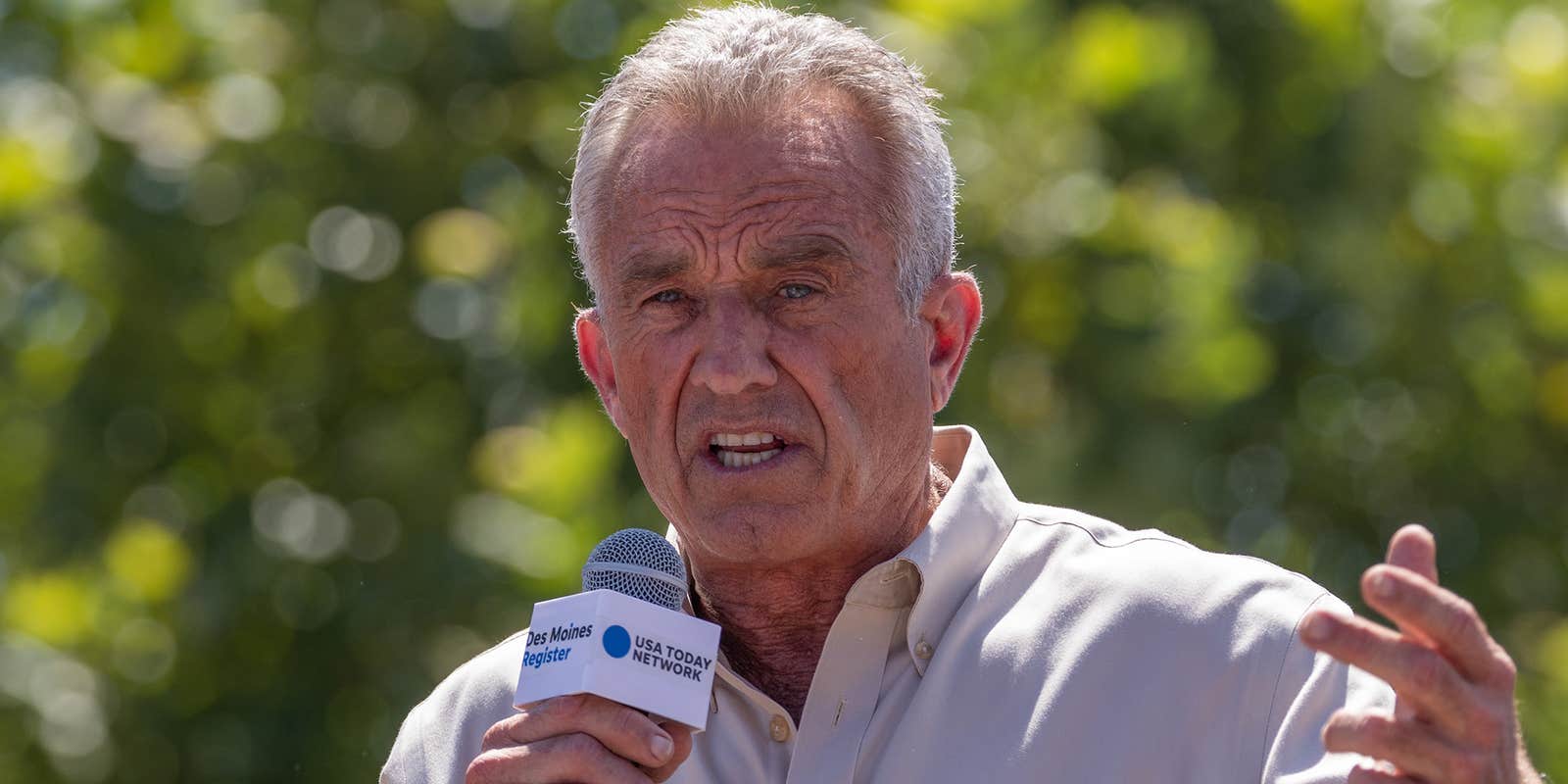Back when Robert F. Kennedy, Jr. first came onto the scene, people were confused. Yes, RFK Jr. was initially running as a Democrat. After all, he’s the nephew of one of the most widely beloved names in the party’s history, President John F. Kennedy.
But on paper, he was challenging an incumbent president, never a popular move with the party, while pushing issues that aligned much more with the nation’s conservatives than liberals.
Now, he’s now running as an Independent and people fear it’s even more of a challenge to President Joe Biden, as he could potentially siphon away votes.
However, it’s unclear just how popular his candidacy is, as things have not played out smoothly for him so far.
RFK Jr.’s anti-vax positions, and the particularly offensive way he’s expressed them over the years, make it clear that he might have a hard time swaying over indecisive voters. He’s also pushed many alienating conspiratorial takes—like his connecting gender dysphoria to widespread chemicals in drinking water and blaming school shootings on anti-depressants—that it’s possible he doesn’t attract any widespread support.
But, to some people online, the single most damaging thing to his presidential ambitions might simply be his voice and how it comes off as … off.
Those listening to RFK Jr.’s voice for the first time will likely be surprised by how raspy it is. It sounds fragile, wavering, like it’s taking him a lot of effort just to keep going. Although certain sections of the internet have taken to mocking him, it’s particularly hard to find the fun in doing so once you learn it’s the result of a neurological disorder.
RFK Jr. voice explained
RFK Jr.’s voice is the result of Spasmodic Dysphonia, which causes the vocal cords “to spasm involuntarily.” Although RFK Jr. has talked about seeking a cure for it, he’s remained unsuccessful so far.
“I had a very, very strong voice. It was unusually strong… I could speak to large halls without any amplification,” RFK said in a NewsNation interview in June. “It makes it problematical for people to listen to me. I cannot listen to myself on TV. I will never listen to this broadcast so I feel sorry for you guys having to listen to me…”
Sure enough, if you listen to interviews of RFK Jr. before he came down with the disorder at 42, he sounds like a person who’d make a great politician, with a strong confident voice that wouldn’t surprise anyone.
It’s a tragic aspect of his character, as he’s a man who once made a living through big, rousing speeches before suddenly being rendered incapable of doing so.
He’s also a used his disorder to spout more anti-vaccine rhetoric.
Why it might actually help him
Although a trembling voice is rarely seen as an asset for a politician, it’s also been proven in recent years that it’s not quite a dealbreaker. President Joe Biden was routinely mocked for his stutter throughout the 2020 election, for instance, but it wasn’t enough to sway an election in former President Donald Trump’s favor. This is partly because Biden leaned into that part of his life; he opened up about his life-long struggle with a speech impediment and would reach out and give advice to kids struggling with the same problem.
And to some voters—ones who likely have a person or two in their lives with a speech impediment of some sort—it made Biden seem more sympathetic.
Likewise, a lot of Dr. Oz supporters in the 2022 midterms thought they had an easy victory for Pennsylvania’s Senate seat after that race’s late October debate. The debate introduced many voters to Sen. John Fetterman’s (D-Penn.) voice for the time, and it wasn’t flattering. Fetterman, who was recovering from a stroke that had temporarily (but severely) affected his speech, had a hard time sounding coherent.
But Fetterman won by a surprisingly strong margin. There’s no provable answer for why he did so well, but part of it might be because most voters know someone in their lives who has suffered from a stroke, and they can recognize the ghoulishness of mocking a person who is in recovery.
Whatever the reason was for his victory, it’s clear now that Fetterman’s voice was never going to kill his political career.
So although there are plenty of reasons why RFK Jr. is probably not going to win the presidency any time soon, his voice won’t be why.
In fact, as his story about struggling with a neurological disorder grows more well-known, it might actually be one of his biggest assets.
A strong handsome voice might be the safest bet for a politician, but you shouldn’t discount a yet distinctive one, especially if it has an interesting story behind it like RFK Jr.’s does.


